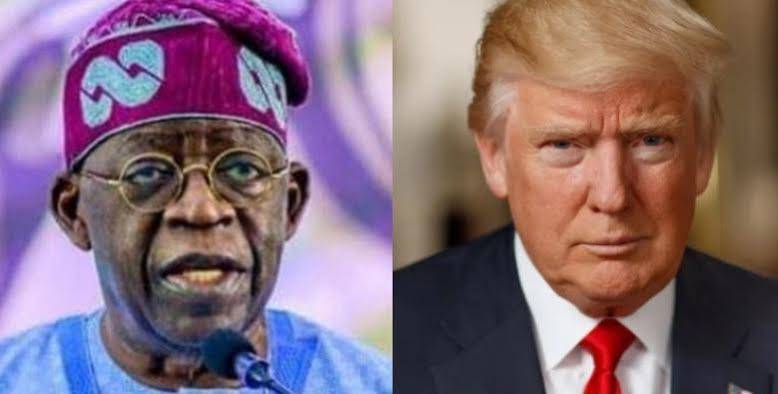Trump's 14% Tariff Threatens Nigerian Non-Oil Exports
The recent imposition of a 14% tariff by US President Donald Trump on Nigerian exports has sent shockwaves through the country's economy. The policy, known as the "Universal Baseline Tariff," imposes a 10% levy on all imported products, with additional reciprocal tariffs for countries considered to maintain unfair trade practices. While crude oil and energy-related goods are exempted, Nigeria's growing non-oil exports to the US, valued at N323.96bn in 2024, are now at risk.
Several key products are exposed to the new tariff regime, including ¹:
- Urea: With a total export value of N146.06bn in 2024, urea is the single largest item at risk. The fertilizer, produced domestically and exported at scale, may face reduced orders from American buyers seeking cheaper sources elsewhere.
- Cocoa Beans: With a total export value of N44.40bn in the second half of 2024, cocoa beans are also vulnerable. The product plays a critical role in the global confectionery industry, and the US remains a major destination for Nigerian cocoa.
- Refined Lead: Earning Nigeria N55.23bn in exports in 2024, refined lead could be affected as the US promotes domestic mining and refining operations.
- Flours and Meals of Soya Beans: With N44.43bn in exports, these products are part of global food and livestock feed supply chains. Tariffs may lead to reduced competitiveness and prompt buyers to consider alternative markets.
- Natural Rubber: With N14.5bn in exports, natural rubber could lose its market edge to producers in other countries if cost becomes a determining factor under the new policy.
The Nigerian government has acknowledged the adverse impact of the tariffs on the country's oil and non-oil exports. Minister of Industry, Trade, and Investment, Dr. Jumoke Oduwole, stated that the policy would undermine the competitiveness of Nigerian goods, especially in sectors reliant on market access and price competitiveness.
In contrast, Minister of Finance and Coordinating Minister of the Economy, Wale Edun, believes the 14% tariff will have a negligible effect on the Nigerian economy, given the exclusion of oil and mineral exports from the tariff. However, the government's economic management team is closely monitoring the global situation and reviewing the budget to address potential changes.
Economic experts warn that the policy will raise prices of goods and services for consumers, weaken the standard of living, slow down manufacturing activities, hinder international trade, and consequently weaken demand for Nigerian oil in the US, one of its key markets.
The US-Nigeria trade relationship has been significant, with a combined N31.1tn in trade between 2015 and 2024. Nigeria's exports to the US have grown steadily, with a trade surplus of N1.64tn.
Chief Executive Officer of Ecobank Transnational Inc., Jeremy Awori, urges African nations to deepen trade among themselves as a buffer against potential economic impacts of new tariffs imposed by Trump.
Conclusion
The 14% tariff imposed by the US on Nigerian exports poses significant challenges to the country's economy, particularly its non-oil exports. The Nigerian government must navigate these complexities to mitigate potential losses and diversify its trade strategies. As the situation unfolds, it is essential to monitor the impact of these tariffs on the country's economy and trade relations.


